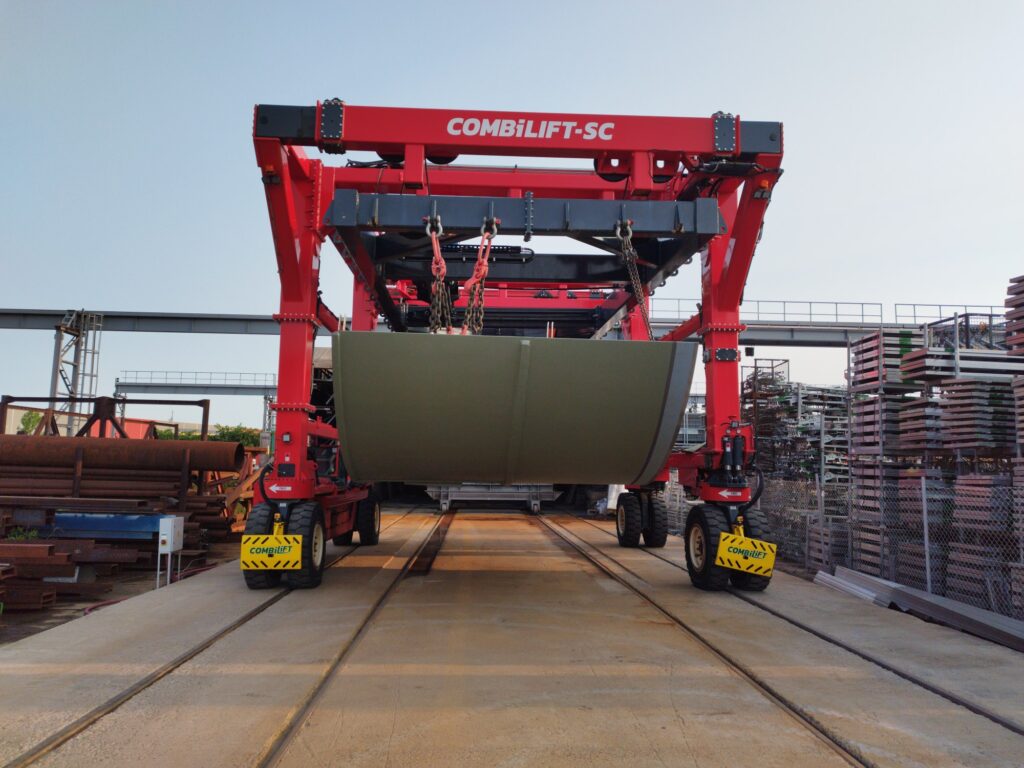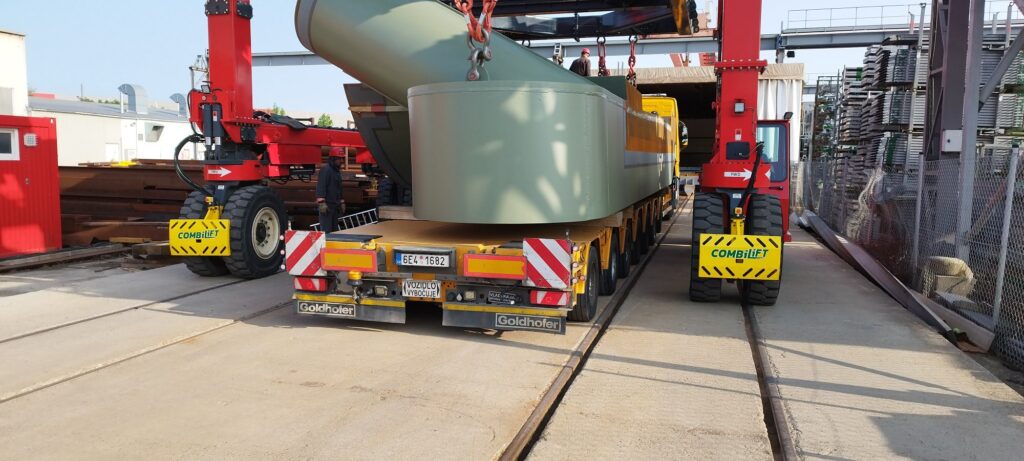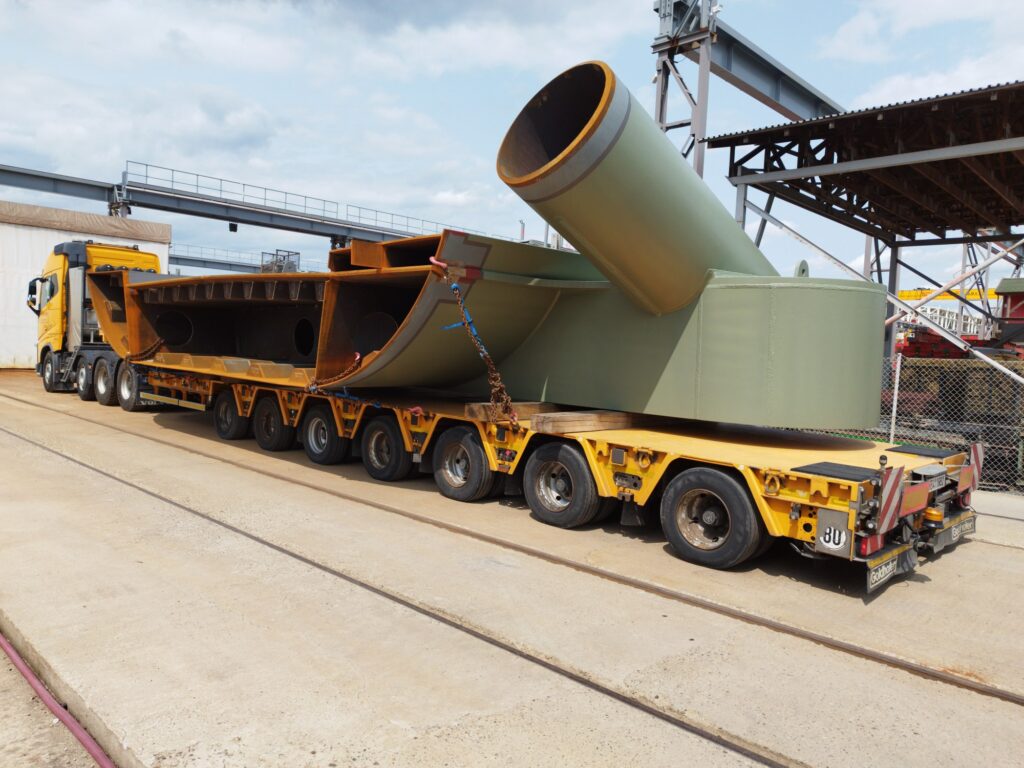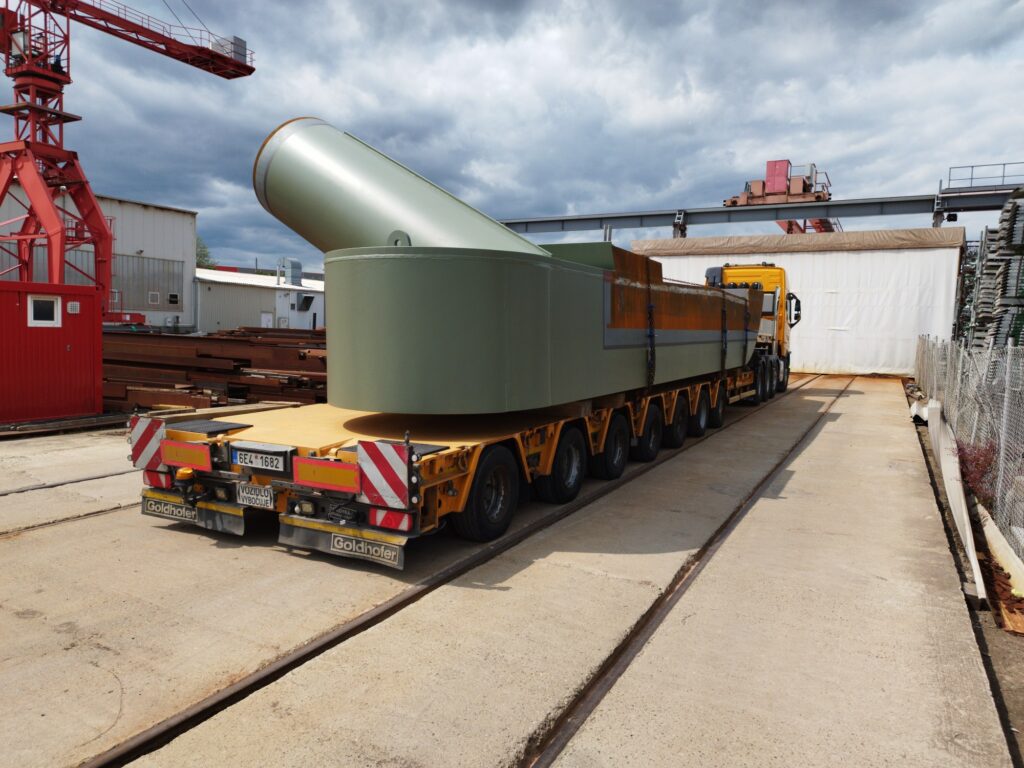Metrostav DIZ Transported Giant Parts of Steel Bridge to Bratislava. From There They Will Sail up the Danube to Münster
10. 6. 2025They started from Prague and were heading to Münster. Soon, however, they left Münster far ahead of them and parked in Bratislava after several hours of driving. It sounds like a paraphrase of a popular Cimrman theatre quote, but it is real construction logistics caused by a long-lasting drought. While the largest parts of the new Münster bridge in the form of two end cross members were manufactured by Metrostav DIZ steelworkers in Horní Počernice, Prague, smaller components were supplied by a subcontractor from Ostrava. Now the Prague parts are waiting in the port of Bratislava for a boat.
The two steel welded pieces, 12.5 metres long and weighing 70 tonnes, hit the road late on Monday evening on 9 June. As it was an oversized cargo, the logistics were very similar to the giant gates for Gabčíkovo Dam, which were also built in the Metrostav DIZ workshop in Horní Počernice. The loading onto special trailers was carried out using a Combilift mobile gantry loader and the journey along the D1 motorway was assisted by the Police of the Czech Republic. Fifteen bridge deck parts are heading to Bratislava from Ostrava in parallel. Their journey together by boat up the Danube and Rhine to Münster in northern Germany will take approximately three weeks.
“Each part of the steel structure was so technically complicated that welding on site was not an option. Such huge and heavy loads can be transported to the construction site only by boat, which the client put in the tender terms and conditions. And the third thing: The long-lasting drought in the whole of Central Europe made it impossible for us to direct logistics along a more straightforward route from Děčín along the Elbe. After all, if it were not for the current rains, the Danube and the Rhine would not have very good navigability either,” said unit head Milan Kysela from Metrostav DIZ.
The new bridge in Münster will replace its predecessor and stands out at first glance with its unusual tubular arch across the bridge deck. It is anchored to the arch by forged steel rods, typical of German bridges. A steel pipe consisting of nine parts also comes from the Metrostav DIZ workshop and arrived at the construction site in advance. The bridge, 100 metres long, almost 12.5 metres wide and weighing 800 tonnes, will have two lanes and will serve road, cycling and pedestrian traffic.
The most technically complex bridge components are the two end cross members, which may remind a layman of military equipment. Their steel elements have travelled a similar distance to the tubes in the supporting arch. “The input sheets went from the German mills to Italy to be trimmed and welded and then to Poland for bending,” explained Kysela.
The replacement of the old bridge by a new one was necessitated primarily by the fact that the original structure was the last one not to meet the clearance height and span for the planned expansion of the Dortmund-Ems Canal. The original Pleistermühlenweg bridge from 1954 was successfully dismantled last December. It was a very challenging operation, with the builders using a pontoon to float the structure. The new bridge will be installed in a similar way in November.
The general contractor for the investor WSA Westdeutsche Kanäle is the Austrian company BeMo Tunnelling, which belongs to the Metrostav Group. Metrostav DIZ carried out the dismantling work and produced the new bridge, and will subsequently also provide the assembly and navigation operations. The “Czech” part of the contract is worth CZK 140 m. Construction started at the end of last year and should be completed by the end of this year.
Czech bridge builders have been successfully penetrating the German market in recent years. Next year, a unique steel bridge in Pirna near Dresden, spanning the nearly one kilometre-wide Gottleuba Valley at a height of up to 70 metres, will be completed. Combined with the Münster contract and other projects, these are important references that can help Czechs get more work. In the coming years, German investors are expected to put contracts for bridges worth tens of billions of crowns out to tender.
Contact details
Radim Mana
Metrostav Group Spokesman
Metrostav a.s. Koželužská 2450/4 180 00 Prague 8
T 266 019 715, M 601 110 376
radim.mana@metrostav.cz, www.metrostav.cz



